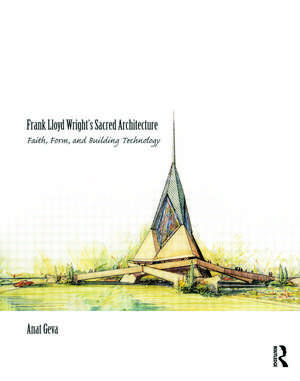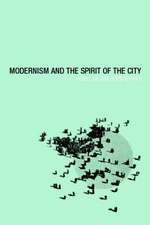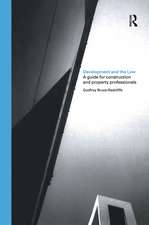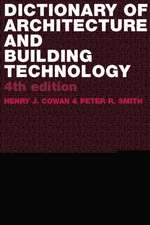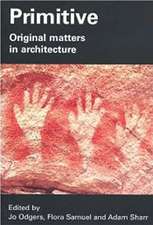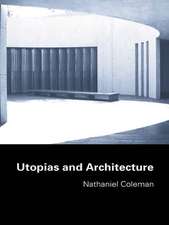Frank Lloyd Wright’s Sacred Architecture: Faith, Form and Building Technology
Autor Anat Gevaen Limba Engleză Hardback – 23 sep 2011
Preț: 375.22 lei
Preț vechi: 480.03 lei
-22% Nou
Puncte Express: 563
Preț estimativ în valută:
71.80€ • 74.96$ • 59.42£
71.80€ • 74.96$ • 59.42£
Carte tipărită la comandă
Livrare economică 05-19 aprilie
Preluare comenzi: 021 569.72.76
Specificații
ISBN-13: 9780415775083
ISBN-10: 0415775086
Pagini: 304
Ilustrații: 1 black & white tables, 158 black & white halftones, 21 black & white line drawings
Dimensiuni: 210 x 280 x 24 mm
Greutate: 0.72 kg
Ediția:1
Editura: Taylor & Francis
Colecția Routledge
Locul publicării:Oxford, United Kingdom
ISBN-10: 0415775086
Pagini: 304
Ilustrații: 1 black & white tables, 158 black & white halftones, 21 black & white line drawings
Dimensiuni: 210 x 280 x 24 mm
Greutate: 0.72 kg
Ediția:1
Editura: Taylor & Francis
Colecția Routledge
Locul publicării:Oxford, United Kingdom
Public țintă
Postgraduate, Professional, and UndergraduateCuprins
Introduction Part 1: Faith, Form and Building Technology: A Conceptual Model of Sacred Architecture Part 2: Faith 1. Nature 2. Democracy and Freedom 3. The Whole as the Equilibrium of its Parts Part 3: Form 4. Nature 5. Democracy and Freedom 6. The Whole as the Equilibrium of its Parts 7. Sacred Path/Plan 8. Sacred Verticality Part 4: Building Technology 9. Nature 10. Democracy and Freedom 11. The Whole as the Equilibrium of its Parts 12. Light 13. Acoustics 14. Thermal Comfort Part 5: Conclusion
Descriere
A scholarly discussion of Frank Lloyd Wright’s sacred architecture, this book is supplemented by 170 drawings and photographs. These sacred architecture projects represent different periods of Wright’s career (from 1886 to 1958), innovative building technologies, and various applications of his design concepts. This unique contribution will be useful to all who are interested in sacred architecture and in Wright’s application of his design ideas and theories to his work with houses of worship.
